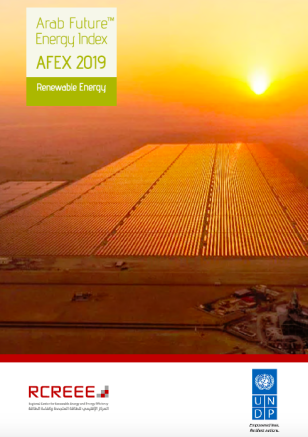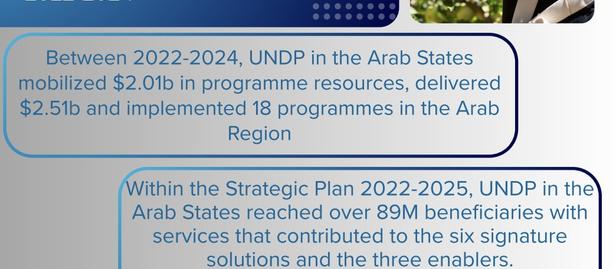2019 Arab Future Energy Index (AFEX) Report
2019 Arab Future Energy Index (AFEX) Report
April 9, 2020
The Arab Future Energy Index (AFEX) is the first Arab index dedicated to tracking low carbon sustainable energy trends towards 2030 and has been produced on an annual basis since 2015 by UNDP and the Regional Center for Renewable Energy and Energy Efficiency, a specialized entity affiliated to the League of Arab States. Referred to by some as the region’s “energy HDR”, AFEX monitors and analyzes trends across the region on the road to 2030, and ranks countries annually against a set of 28 indicators across areas of institutional capacity, policy frameworks, market structures and innovative finance.
While the Arab region has the world’s highest levels of solar radiation, this has remained an untapped resource over the years, despite rising levels of energy insecurity and growing attention to climate change. But things are starting to change. As shown by AFEX, the past decade has seen a ten-fold increase in solar and wind power capacities in the region, and a doubling of capacities in the past two years alone. These are positive and unprecedented trends. But further acceleration is needed if the region is to achieve its ambitious target of 190 giga watts (GW) of renewable energy by 2030, from the 7 GW in place today.
As AFEX highlights, a number of success stories are taking shape in the region with more
ambitious policies and scaled up private investment setting the stage for an acceleration of low carbon solutions. AFEX 2019 provides rankings for all countries in the region, with the region’s top five performers being Egypt, Morocco, Jordan, UAE and Algeria. Jordan tops the list for per capita levels of renewable energy, while Yemen made progress in use of solar power to meet emergency development needs.
These positive trends show growing political commitment, ambitious 2030 targets, and new policy frameworks that de-risk the investment climate. Market based instruments have resulted in greater space for private partnerships and investments opportunities. Lowering solar costs, subsidy reforms, special renewable energy development zones, and dedicated government institutions for renewable energy have also been important factors in the solar expansion across the region.
The Arab region is entering a critical phase on the road to 2030. If clean energy investments continue their upward momentum, coming years could see the region transition to a low carbon sustainable energy future. UNDP stands ready to help our partners achieve this goal, with over $500 million of UNDP grant projects today across the region to help countries take climate action, accelerate sustainable energy pathways, and promote more sustainable use of natural resources and the environment.

 Locations
Locations





